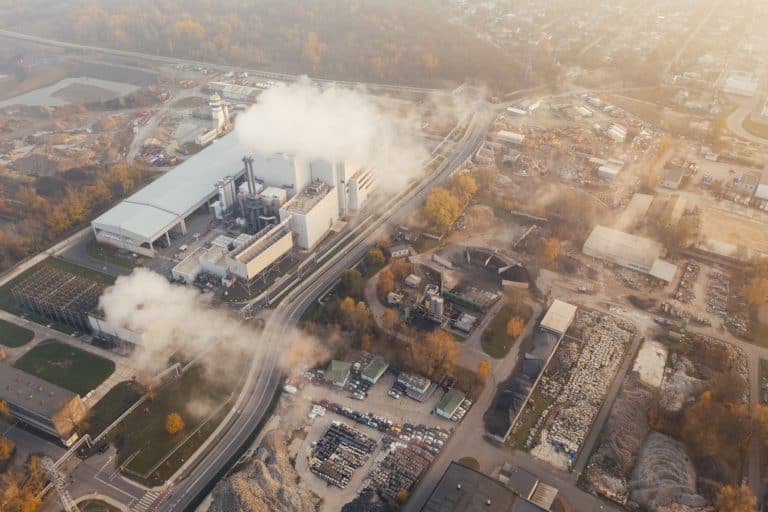How AI is transforming sustainable civil engineering
Artificial intelligence (AI) is one of the most transformative technologies of our time. Its potential to solve the world’s most pressing problems is why AI has become a central focus for sustainable engineering. We will now explore how AI is being used in sustainable engineering. We will also give consider some of the ethical concerns this might raise.
What is Artificial Intelligence?
Artificial Intelligence (AI) is the umbrella term for a set of technologies and algorithms that enable computers to learn, understand, reason, and act. AI-enabled machines are constantly being trained or programmed to take on complicated tasks. There are other terms that are associated with or used in the field of AI. These are phrases such as machine learning, deep learning, and robotics. More definitions of these terms can be found here.
What is sustainable civil engineering?
Sustainable civil engineering focuses on the development, design and implementation of systems, structures and infrastructures by using resources efficiently while minimizing environmental damage. It also aims to improve or maintain the quality of life in local communities by reducing socio-economic disparities. This is in addition to improving resilience to natural disasters.
Sustainable civil engineering is a much-needed approach in today’s urban environment. This is because of the growing climate change challenges and increased pressure on our limited resources. By embracing sustainability measures, civil engineers can help reduce our overall carbon footprint. They can also help to conserve energy, and find innovative solutions to global warming. Sustainable civil engineering is an important step in moving towards a more sustainable future that will benefit all of us.
Impact of AI on sustainable civil engineering
Artificial Intelligence (AI) is revolutionizing the field of sustainable engineering. It is also having a major effect on both society and the environment. AI is being used to design, analyse, operate, and optimize more efficient systems that support sustainability initiatives.
The development of algorithms for extracting meaningful data from complex systems also enables engineers to effectively predict system behaviour. This can also help to deploy resources and develop smarter systems for use in large-scale infrastructure development projects.
As AI technology advances, engineers are able to improve upon their models by leveraging AI-generated insights. This is done with while aiming towards reducing global carbon dioxide emissions and implementing green engineering practices. This high level of analysis allows engineers to make more informed decisions going forward. Such decisions can potentially have a big impact on our future sustainability efforts.
Areas of sustainable engineering where AI is being used
Here, we’ll take a closer look at how AI can revolutionize the world’s current approaches towards sustainability. We will examine several potential areas in civil engineering where AI-driven activities could have positive effects on our existing infrastructure. These areas are:
Sustainable Building Technology
AI is being used to create smarter, more efficient building technology. AI-based solutions can help buildings better manage power consumption and energy use, optimizing for cost savings and greater efficiency.
Building automation systems powered by AI can automatically adjust lighting, heating, and cooling systems, security systems to minimise energy. This can also included other components of the building’s infrastructure in order to optimize energy use and power consumption.
AI-powered systems can also be used for monitoring building operations and ensuring that the occupants are always comfortable and safe. This technology allows for more efficient operation of the building’s infrastructure. It also enables greater overall control from maintenance staff and management.
AI can also be used to develop predictive analytics models that can forecast risks and maintenance needs. This will help in the improvement of uptime and cost reductions. With AI-powered solutions, building owners are able to leverage real-time data from multiple sources. This does enable owners to make informed decisions about their operations more quickly.
Sustainable Water Resources and Hydraulics
AI is rapidly becoming a powerful tool for water professionals to better manage and conserve resources. It can help identify and optimize the best-practice methods for treating, storing, delivering, and reusing water in hydraulic systems.
AI technologies can be used to monitor flow rates, detect system malfunctions, predict future states of the system. They can also be used to detect water contamination. AI can also identify patterns in water usage and recommend strategies for improving efficiency or reducing waste. This might involve automatically adjusting irrigation schedules based on current weather and crop conditions.
These technologies have the potential to revolutionize the way we manage water resources. They can also help us in creating a more sustainable future.
Sustainable Transport and Traffic Engineering
AI can be used to analyse traffic patterns and suggest ways of reducing congestion, improving safety on roads, and suggesting alternative routes that are more fuel efficient. It can also provide insights into how people move around cities. AI systems can also identify patterns of behaviour which can be used to improve public transportation.
AI can help in the development of autonomous vehicles. This has the potential to reduce emissions while creating more efficient transport networks. AI-powered systems can also provide real-time information on accident hot spots, enabling drivers to make informed decisions.
Ultimately, the use of AI in sustainable transportation holds great potential for reducing emissions and improving the efficiency of transport networks. By leveraging the power of AI, we can create smarter and more efficient transport systems that will have a positive impact on our environment.
Sustainable Materials
One of the most promising applications of AI in civil engineering is its use for sustainable materials. AI algorithms are being used to develop more efficient building materials, such as those made from natural resources that reduce the environmental impact of construction and demolition activities.
In addition, AI can be used to better understand the lifecycle of a material and its potential environmental impacts over time, enabling engineers to make more informed decisions about the most suitable materials for their projects. In this way, AI is helping civil engineers create sustainable structures that are both cost-effective and environmentally friendly.
As the technology continues to advance, civil engineers will be able to take advantage of even more opportunities for using AI in their work. This could lead to a revolution in sustainable materials, making it easier than ever before to build with the environment in mind.
Sustainable Geotechnical Engineering
AI is increasingly being used in geotechnical engineering to facilitate sustainable ground design and construction practices. With its ability to quickly process large amounts of data, AI provides engineers with the insights they need to make better-informed decisions earlier in foundation design process. AI-powered robots are being used for soil characterisation involving taking soil samples at depths that would otherwise be inaccessible. These samples can then be used to assess the suitability of a site for large-scale works such as highway construction or large building projects.
By leveraging predictive analytics and simulation tools, engineers can identify potential problems before they arise and gain insight into the interactions between various ground variables. AI can also be used to identify and analyse patterns in data to detect risks, identify trends, and advance geotechnical design accuracy.
By incorporating AI into their workflow, engineers can optimize the design process while reducing costs and improving safety outcomes.
Sustainable Structural Engineering
AI is being used in structural engineering for a variety of different purposes. One way it can be used is to predict and optimize the performance of existing structures, making them more sustainable over time. This type of analysis could help engineers make informed decisions on how to best maintain and repair the structure, ensuring it is as energy-efficient and cost-effective as possible.
AI can also be used to optimize the design process of new structures, by taking into account numerous factors such as material characteristics, environmental conditions, and local regulations. This ensures that the design is compliant with all applicable standards and minimize the environmental impact of the project.
AI systems can be used to assess how changes in design parameters such as load-bearing capacity, geometry, and material properties affect a structure’s overall performance. This helps engineers create more sustainable structures that use less energy and require fewer materials to construct.
Overall, AI can be used to greatly improve the sustainability of structural engineering projects, helping to create more efficient and cost-effective solutions while minimizing environmental impact.
Surveying/Remote Sensing and GIS
AI is playing an increasingly important role in sustainable surveying, particularly when it comes to civil engineering. AI-driven drones are being used to map out all kinds of terrain, including construction sites and areas that have been damaged by natural disasters.
AI-powered drones can not only identify potential hazardous materials, but they can also be used to monitor soil erosion, changes in surface levels and assess the quality of construction AI is also being used to predict the expected longevity of structures, helping to ensure that construction projects are designed with sustainability in mind.
AI is clearly becoming a key tool for sustainable surveying in civil engineering. This is by helping to ensure that construction projects are designed with sustainability and safety in mind.
Ethical issues involving AI use in engineering
As ethical evaluations of AI technology become more commonplace, it is important for civil engineers to consider the impact their work will have on society. While AI has the potential to streamline many processes and make sustainable civil engineering more efficient, it is important to weight the pros and cons of implementing such technologies. Have you considered the ethical implications of using AI in your field?
Future outlook for AI in sustainable civil engineering
The future outlook for AI in sustainable civil engineering is incredibly exciting! As technology continues to improve, there will be greater and more efficient applications of AI in civil engineering projects. In the near future, AI will be able to assist engineers with predictive modelling, analytics, and in making decisions that are best for both cost efficiency and environmental sustainability. AI can also help generate real-time data on project progress and reduce dependence on manual labour by automating certain processes such as supply transport management. In the long run, AI has the potential to not only revolutionize sustainable civil engineering but many other industries as well. The possibilities are endless!
Final Thoughts
Just as the capabilities of AI technology continue to increase, so too will its potential applications in the field of civil engineering.
Hence, as we move towards a future in which AI is increasingly integrated into our everyday lives, it’s important to consider how it can be used to solve some of the world’s most pressing problems.
Contact
Have questions or need help? Please use the form to reach out .






